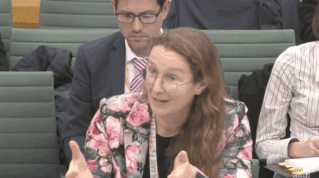“Wholly unsuitable” education, health and care plans (EHCPs), long waits and “poorly planned” transitions into different phases of education were among the key reasons areas failed SEND inspections, new analysis by Ofsted shows.
The watchdog, alongside the Care Quality Commission, has vowed to make a series of improvements – including exploring the creation of a national pool of education inspectors and introducing report cards – following a two-year review into the local area partnership assessments.
Just 14 (26 per cent) of the 54 areas visited since the inspections were rolled out in 2023 received top marks – with the same number ordered to “urgently” address “widespread and/or systemic failings”.
Lee Owston, Ofsted’s national director for education, said: “We know that we can continue to improve the way that we inspect local areas.
“[It’s] a fact that services for children with SEND have fallen short for too long, and it is vital that we hold providers to account where improvements need to be made.”
1. ‘Wholly unsuitable’ EHCPs
Ofsted’s review stated the timeliness and quality of EHCPs was “identified as an area for improvement in 69 per cent of inspections” and a priority area in 71 per cent of areas with “widespread” failings.
In some, the plans “did not capture key information” from all the necessary professionals from education, health and social care. This was despite them “having a strong understanding of the child or young person’s needs”.
Some parents also said the support outlined in EHCPs “was wholly unsuitable for their child’s level of need or was not provided at all”.
Examples of “stronger practice” were witnessed, though. For example, one partnership “commissioned specialist providers to start assessments before… plans were agreed”.
This meant children and young people “got the support they needed quickly, sometimes without the need” for an EHCP.
2. Long wait times caused ‘pain and restriction’
In almost 60 per cent of inspections, “long waiting times for health services” for children and young people with SEND were listed an area for improvement. In 64 per cent of areas with “widespread and/or systemic failings” it needed action as a “priority”.
Needs could escalate during waits for services, the review said, while poor communication could frustrate parents and erode “their trust in the SEND system”, particularly if their child needs a diagnosis.
This can then further delay referrals to appropriate services.
In some areas, there were long wait times to access specialist equipment, which can have a “significant adverse impact” on children’s lives.
Waits for specialist wheelchairs caused some to suffer “from pain and restriction”, affecting their “physical development and… ability to fully participate in daily activities”.
3. Governance most common ‘priority area’
Strategic governance and oversight arrangements were most commonly identified as a “priority action”.
In these areas, leaders “had been too slow to respond” to the rise in SEND numbers and the “increasing complexity” of their needs. They usually “did not understand” youngsters’ needs and so did not target resources effectively.
But the review cited a “belonging strategy” in one partnership that was successful “largely because of the work of the behaviour support advisory team and appropriate use of AP”, which was “used as an intervention and not respite”.
The work helped “reintegrate” them back into mainstream settings. It also reduced suspensions and exclusions across primaries and secondaries.
4. Data-sharing ‘key’
Ofsted said “effective information and data-sharing” across a partnership is “key” to informing how services are prioritised and coordinated.
Where this was done best, partnerships were able to “identify emerging trends”, helping youngsters receive “the right support at the right time”.
However, this was listed as an area for improvement in 46 per cent of inspections. In “many areas… education, health and social care partners used different systems”, preventing them from “sharing information effectively and efficiently”.
This meant practitioners worked “in isolation” and that children and young people’s needs “were not always identified”.
The review added that “if schools do not share attendance data with relevant partners quickly, they may fail to identify when absenteeism is becoming a concern for a child with SEND”. This could lead to pupils’ needs “escalating”.
Inspectors did see “examples of partners using data effectively to ensure there were sufficient spaces in special schools, AP and post-16 settings”. This was also used to “plan and commission” additional places.
5. ‘Gaps in provision’ and poor transitions
Commissioning arrangements were listed as a “priority action in 43 per cent” of areas with “widespread and/or systemic failings”.
This led to “gaps in provision”, with leaders “not using available data and information effectively” to make commissioning decisions.
This impacted “what health, education and social care services could offer” kids, making appropriate provision unavailable.
When arrangements were effective, leaders “were able to make the best use of resources to help improve outcomes”. In one area, leaders were able to check the “suitability of commissioned AP and out-of-area placements”.
Planning for the transition between different phases of education, such as moving to new schools, colleges or into adult life, was an area for improvement in just over half of inspections.
This “led to gaps in provision and meant some children… did not have access to employment, training opportunities or other relevant services”.
“This can prevent those children and young people from achieving their potential, as well as making them feel isolated from their community,” the report said.
6. Working with parents
Through “co-production” children, families and providers “work together to make a decision or create a service that works for them all” to inform decisions and allow “everyone to feel like equal partners”, the review noted.
This was listed as an area for improvement in 24 per cent of inspections. Inspectors found “too often” ECHPS that weren’t “co-produced and therefore did not capture the child or young person’s voice”.
“In some cases, the contribution from health and social care professionals was not sufficient to provide a comprehensive review of the young person’s needs and how these could best be supported through a joint, multi-agency approach.”
7. Improvements promised
Ofsted and CQC said they will “consider options for further developing the area SEND framework”. This includes exploring the introduction of a “report card” after the first cycle of area SEND inspections ends in December 2027.
Following the review, the watchdogs also committed to making nine improvements to the way SEND checks are conducted. They are:
- ensuring that inspectors have sufficient time and providing more opportunities for young people and families to engage with them during visits
- communicating better with children, young people and families to ensure they understand how to share their thoughts with inspectors by improving surveys
- simplifying the data inspectors ask for
- making engagement meetings more supportive and adjusting the frequency of these meetings
- where appropriate, specifying more clearly which member of the partnership should take forward areas for improvement
- exploring how inspection reports can be made more accessible and sharing a summary of survey findings with local area partnerships and family representative groups to support strategic planning
- updating and increasing the frequency of inspectors’ training
- exploring the creation of a national pool of Ofsted education inspectors to increase the consistency and expertise of teams
- working with the Ofsted Academy to continue recruiting inspectors with relevant experience in SEND and alternative provision















Your thoughts